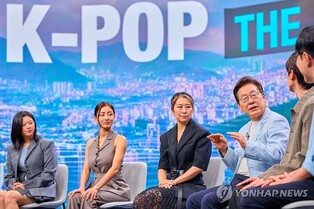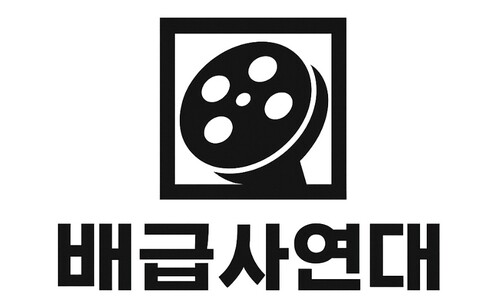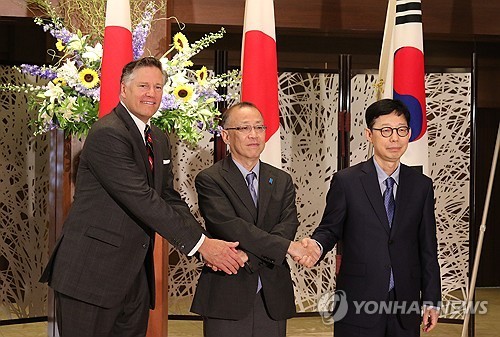 |
| ▲ U.S. Deputy Secretary of State Christopher Landau, Japanese Vice Foreign Minister Takehiro Funakoshi and South Korean Vice Foreign Minister Park Yoon-joo (from L to R) pose for a photo ahead of their trilateral talks in Tokyo on July 18, 2025. (Yonhap) |
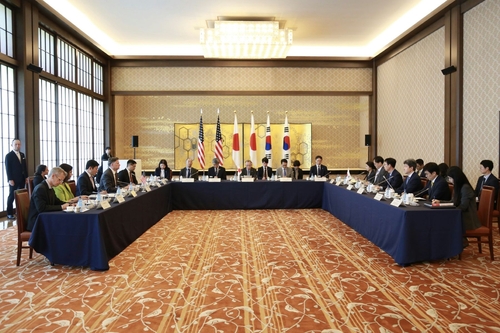 |
| ▲ This photo, provided by Seoul's foreign ministry, shows a general view of the trilateral talks among the vice foreign ministers of South Korea, the United States and Japan, held in Tokyo on July 18, 2025. (PHOTO NOT FOR SALE) (Yonhap) |
(3rd LD) S Korea-US-Japan-talks
(3rd LD) S. Korea, U.S., Japan reaffirm 'strong' N.K. deterrence in high-level diplomatic talks
(ATTN: ADDS State Department's readout in paras 20-23; RECASTS dateline)
By Kim Seung-yeon
TOKYO/SEOUL/WASHINGTON, July 18 (Yonhap) -- Senior diplomats of South Korea, the United States and Japan reaffirmed Friday the need to maintain "strong" deterrence against North Korea's nuclear threats and agreed to continue efforts to advance their trilateral cooperation, Seoul officials said.
They shared the view during the three-way dialogue in Tokyo, where First Vice Foreign Minister Park Yoon-joo was joined by U.S. Deputy Secretary of State Christopher Landau and their Japanese counterpart, Takehiro Funakoshi.
It marked the first vice foreign ministerial talks since the launch of the Lee Jae Myung government and the second Donald Trump administration.
"The vice foreign ministers reaffirmed the importance of maintaining strong deterrence against North Korea's nuclear threats through trilateral cooperation amid the evolving security environment," South Korea's foreign ministry said in a release.
"They agreed to continue enhancing trilateral security cooperation based on the solid bilateral alliances ... and to work closely together to make progress on North Korea-related issues," it said.
Park used the talks to explain Seoul's efforts to ease tensions on the Korean Peninsula and resume dialogue under the Lee government, the ministry said.
Friday's meeting followed the three-way dialogue that took place among Park, U.S. Secretary of State Marco Rubio and Japanese Foreign Minister Takeshi Iwaya on the sidelines of ASEAN-related foreign ministers meetings in Malaysia last week.
Recalling the meeting in Kuala Lumpur, Park stressed that trilateral cooperation among the three nations is expanding beyond a single field to encompass security, the economy and technology.
Park noted that the three countries have much to achieve together in the years ahead, adding that they share the responsibility to turn the potential of their cooperation into tangible outcomes.
The three countries exchanged views on regional developments and agreed to continue efforts to maintain peace and stability in the Indo-Pacific.
Recognizing economic security as an area where the people of the three countries can directly feel the benefits, they agreed to further enhance practical cooperation in key and emerging technologies, especially in critical minerals, supply chains and artificial intelligence.
They also noted developments in their trilateral partnership framework, such as the launch of the trilateral secretariat, and agreed to sustain momentum in the partnership through regular dialogue.
The last vice foreign ministers' meeting among the three countries took place in Seoul in October last year.
On the margins of the trilateral talks, Park separately met with Landau and discussed bilateral relations and ongoing tariff negotiations, the ministry said.
They committed to "making diplomatic efforts and providing support to achieve mutually beneficial and win-win outcomes in the ongoing tariff negotiations," the ministry said.
During the talks, Park expressed hope that the allies would work together to further deepen and develop the alliance across a wide range of areas, including diplomacy, security, the economy and trade, as well as advanced technologies.
Landau, in turn, reaffirmed the U.S.' ironclad commitment to the alliance and to the Indo-Pacific region, expressing his desire to continue working closely with Park going forward.
They also reaffirmed their shared goal of the complete denuclearization of North Korea and agreed to maintain close communication and cooperation to make progress on North Korea-related issues.
Park went on to stress the importance of continued consultations at all levels, including at the leaders' level, to address bilateral issues. Agreeing to Park's point, Landau said he will make every effort in that regard.
In a separate readout, State Department spokesperson Tammy Bruce said that the three diplomats discussed North Korean threats and other regional security challenges as well as a deepening military partnership between Moscow and Pyongyang.
"The Deputy Secretary reiterated the United States' ironclad commitments to the defense of Japan and the ROK, backed by America's unmatched military strength," Bruce said. ROK is short for South Korea's official name, the Republic of Korea.
"The three reaffirmed their resolute commitment to the complete denuclearization of North Korea and expressed serious concerns about its increasing military cooperation with Russia. They discussed the importance of strengthening deterrence and resilience against regional security threats," she added.
In addition, the spokesperson said that the three sides agreed that South Korean and Japanese participation in the Alaska Sustainable Energy Conference sent a "strong signal about the importance of energy security underpinned by unleashing American liquefied natural gas." The conference took place in Anchorage last month.
Ahead of his talks with his U.S. counterpart, Park met one-on-one with Funakoshi to discuss bilateral relations and other related issues, including North Korea.
Park told Funakoshi that South Korea will continue to build a "firm and mature relationship with Japan based on mutual respect and trust," the ministry said.
They agreed on the need for closer coordination in addressing various common issues amid the complex international landscape and to explore ways to produce tangible outcomes in their cooperation as they continue the positive momentum in bilateral ties.
(END)
(C) Yonhap News Agency. All Rights Reserved


















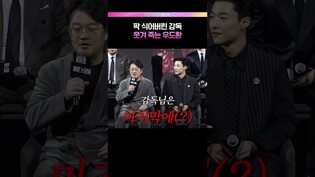
![[풀영상] 디즈니+ '메이드 인 코리아' 제작발표회|현빈 Hyunbin·정우성 Jung Woosung·우도환·서은수·원지안·정성일·강길우·노재원·박용우|Made In Korea](/news/data/20251215/p179554206856695_165_h.jpg)

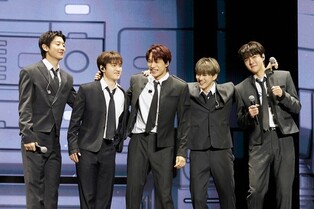



![[2025결산]](/news/data/20251217/yna1065624915957085_885_h2.jpg)

